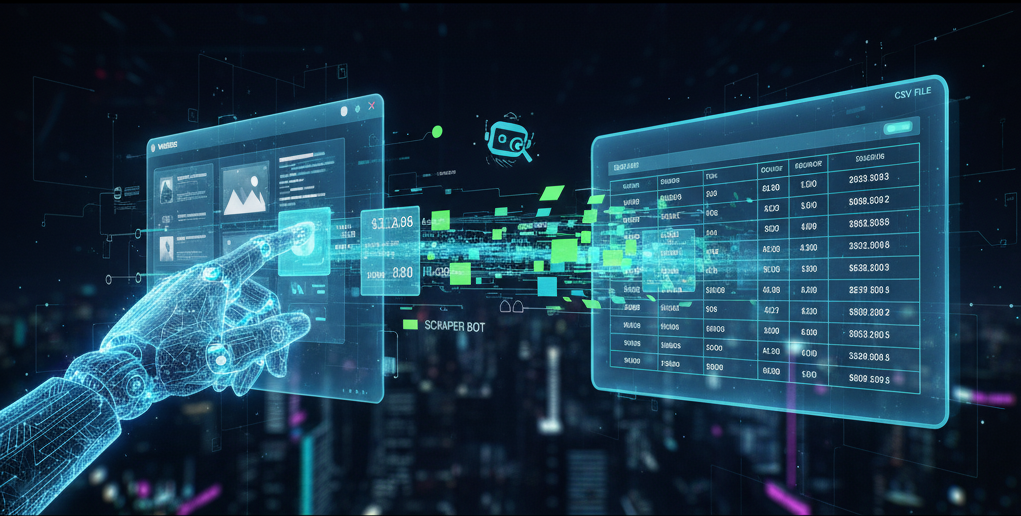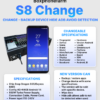In the data-driven world of digital marketing, MMO (Make Money Online), and business intelligence, web scraping has emerged as an indispensable tool. It’s the engine behind price comparison sites, market research reports, and lead generation lists. Yet, as powerful as it is, a persistent question looms over the practice: is it legal? The answer isn’t a simple yes or no. The legality of web scraping exists in a complex gray area, shaped by a patchwork of laws, court rulings, and the specific context of each scraping activity. This guide provides a deep dive into the legal landscape of web scraping for 2025, ensuring you can leverage its power while staying on the right side of the law.
What Exactly Is Web Scraping?
At its core, web scraping (also known as web harvesting or data extraction) is the automated process of collecting data from websites. Instead of a human manually copying and pasting information, a bot or “scraper” is programmed to visit web pages, identify the required data, and extract it into a structured format, like a CSV file or database. This technique is used for a vast range of purposes, from tracking competitor pricing and monitoring brand sentiment to gathering data for machine learning models.
The distinction between manual data collection and automated scraping is crucial from a legal standpoint. While no one would challenge your right to browse a public website, the use of automated bots at scale raises questions about access, data ownership, and impact on the website’s infrastructure.

The Core of the Legal Debate: Public vs. Private Data
The central pillar of the web scraping legal argument revolves around the accessibility of data. The prevailing legal consensus, heavily influenced by landmark court cases, is that scraping publicly available data is generally legal. If information is accessible to anyone on the internet without needing a password, login credentials, or bypassing any form of authentication, it is considered public.
However, the moment a scraper needs to bypass a login screen or any other access barrier, it enters a dangerous legal territory. Accessing data that is protected behind a user account is almost universally considered illegal and a violation of privacy and computer fraud laws.
Key Legal Frameworks Governing Web Scraping
Several key pieces of legislation in the United States and internationally form the basis for legal challenges against web scraping. Understanding them is vital for any serious practitioner.

1. The Computer Fraud and Abuse Act (CFAA)
The CFAA is one of the most frequently cited laws in web scraping cases. Enacted to combat hacking, it criminalizes accessing a computer “without authorization” or “exceeding authorized access.” For years, companies argued that scraping their site in violation of their Terms of Service (ToS) constituted “unauthorized access.”
However, the landmark LinkedIn v. hiQ Labs case provided crucial clarification. The Ninth Circuit Court of Appeals ruled that scraping data that is publicly accessible does not violate the CFAA, even if it goes against the website’s ToS. The act of simply viewing and collecting public data is not “unauthorized access” in the way the CFAA was intended to prevent.
2. Copyright Law
Copyright law protects original works of authorship, such as articles, photos, and videos. While scraping facts (like prices, names, or stock levels) is generally permissible as facts cannot be copyrighted, scraping creative or original content can lead to copyright infringement. If you scrape a blog’s articles and republish them, you are infringing on their copyright. The “fair use” doctrine can sometimes be a defense, but it’s a complex and highly situational argument.
3. Digital Millennium Copyright Act (DMCA)
The DMCA specifically targets the act of circumventing technological measures put in place to protect copyrighted material. In the context of web scraping, this means if a website uses anti-scraping technologies like CAPTCHAs or IP blocks to protect its data, attempting to bypass these measures could be a violation of the DMCA.
4. Terms of Service (ToS)
A website’s Terms of Service is a legal agreement between the site owner and its users. Most websites have a clause in their ToS that explicitly prohibits automated data collection. While violating a ToS is not a crime in itself, it can lead to a civil lawsuit for breach of contract. A company could sue you and seek damages if they can prove your scraping caused them harm.
Landmark Court Cases That Shaped the Landscape
The legal theory surrounding web scraping has been shaped more by judges than by legislators. Several key cases have set important precedents.
1. LinkedIn Corp. v. hiQ Labs, Inc. (2019)
This is arguably the most important case for the web scraping community. hiQ Labs, a data analytics firm, scraped public profile information from LinkedIn to create reports on employee attrition. LinkedIn sent a cease-and-desist letter and attempted to block hiQ, citing the CFAA. The court sided with hiQ, ruling that the CFAA does not bar access to publicly available data. This decision affirmed that scraping public data is not a form of hacking.
2. Ryanair DAC v. TVBE Ltd (2021)
In Europe, this case provided a different perspective. Ryanair’s ToS explicitly forbade scraping. A flight comparison website scraped Ryanair’s pricing data. The Court of Justice of the European Union (CJEU) ruled that website owners can enforce their ToS to prohibit scraping, even for publicly available data, on the basis of breach of contract. This highlights a key jurisdictional difference: what is permissible in the US may lead to a successful lawsuit in the EU.
Best Practices for Ethical and Legal Web Scraping in 2025
To mitigate legal risks, it is essential to adopt an ethical approach to web scraping. Adhering to these best practices will not only keep you safer legally but also foster a more sustainable data collection ecosystem.
- Always Check
robots.txt: This file, found at the root of a domain (e.g., website.com/robots.txt), contains instructions for bots. Respect the rules laid out in this file. If it says “Disallow,” do not scrape that part of the site. - Scrape Responsibly: Don’t bombard a server with rapid-fire requests. This can slow down or crash the website, causing harm that could be used against you in a legal case. Make your requests at a reasonable rate, identify your bot in the User-Agent string, and consider scraping during off-peak hours.
- Read the Terms of Service: Understand the website’s policies on data scraping. While a ToS violation isn’t a federal crime (per LinkedIn v. hiQ), it can still be grounds for a lawsuit or getting your IP blocked.
- Avoid Personal Data: Be extremely cautious when collecting Personally Identifiable Information (PII). Regulations like GDPR in Europe and CCPA in California impose strict rules on the collection and processing of personal data.
- Do Not Bypass Logins: Never attempt to scrape data that is behind a login wall or any other authentication system. This is the clearest line between legal and illegal scraping.
Conclusion: Scrape Smartly, Scrape Ethically
The legal landscape for web scraping in 2025 remains nuanced but is clearer than ever before. Scraping public data is generally legal in the United States, thanks to precedents like LinkedIn v. hiQ. However, this right is not absolute. It is governed by a responsibility to act ethically, respect website infrastructure, and steer clear of copyrighted material and private data. Violating a website’s Terms of Service can still expose you to civil liability.
For professionals in MMO, digital marketing, and business, data is the lifeblood of success. Automation is key to scaling your operations, whether it’s managing thousands of social media accounts or gathering market intelligence. At GenFarmer, we provide the tools to help you automate powerfully and responsibly.
Our ecosystem, from high-performance box phone farms and cloud phones to sophisticated router proxy hardware, is designed to give you control and efficiency. With GenFarmer’s automation solutions like GenFarmer Trust and GenFarmer Boost, you can automate tasks on platforms like Facebook, TikTok, and Instagram, building assets and gathering insights at scale.











